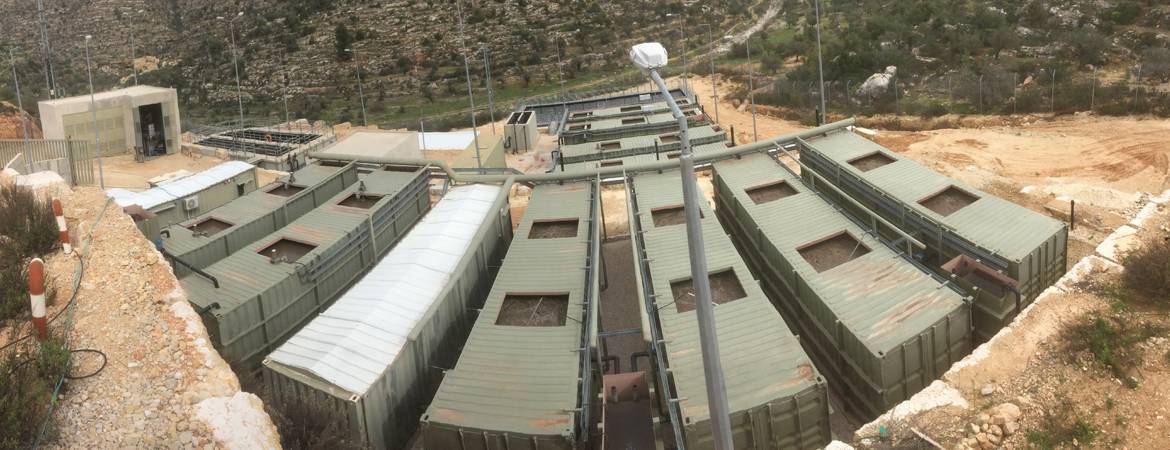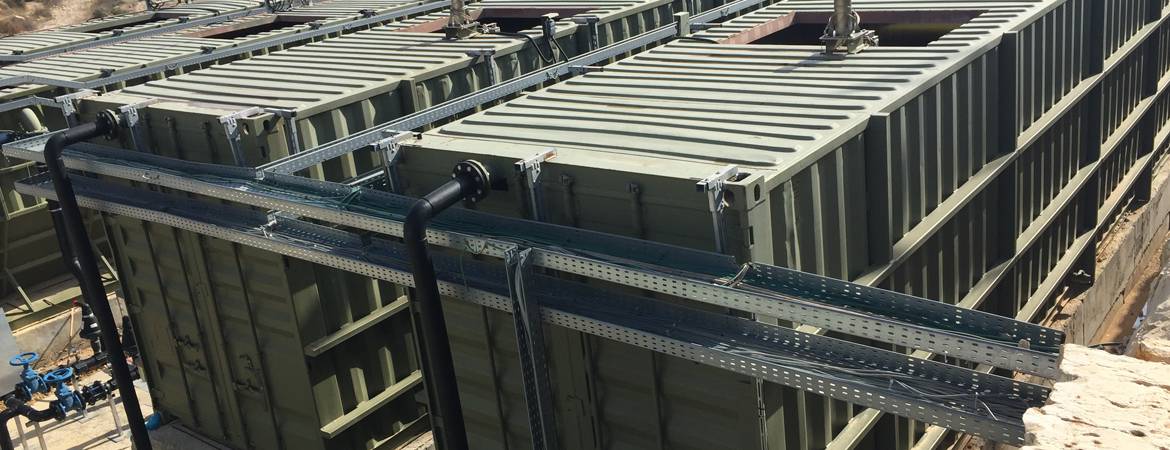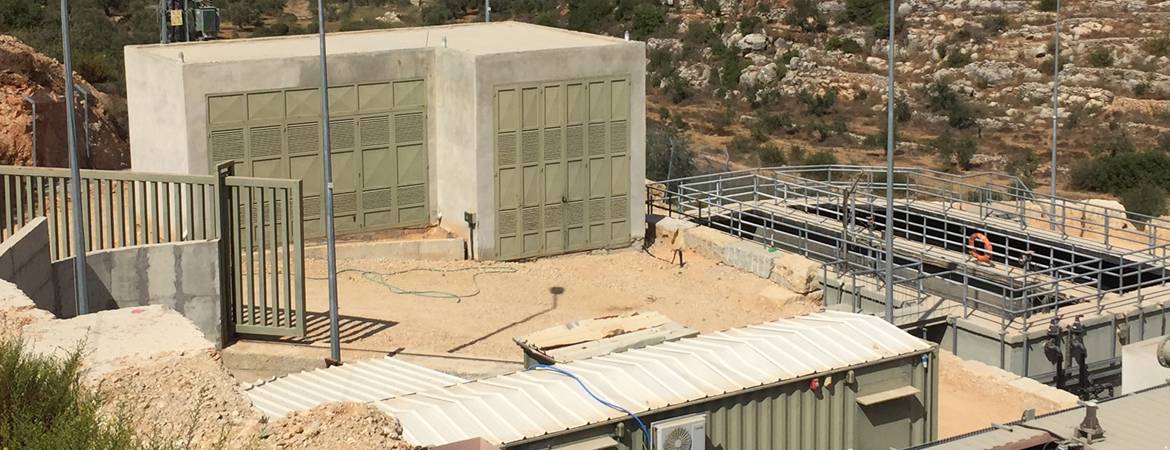Wastewater
Rawabi Wastewater Treatment Plant (WWTP)
Rawabi proudly invested to have one of the top-notch technologies in the field of wastewater treatment to offer its residents and surrounding environment an Advanced Wastewater Treatment Plant (WWTP), using innovative AGAR® technology (Attached Growth Airlift Reactor). Occupying only two donums of land (about half an acre) and located more than 1.5 kilometers away from residential units and nearby villages. The WWTP consists of pre-treatment (PT), secondary (biological) treatment (ST), tertiary treatment (TT), and sludge treatment, and is designed to remove organic, nutrients and solids loads from the municipal wastewater. This advanced technology is used worldwide in the treatment of industrial and domestic wastewater, while consuming less energy, utilizing a smaller footprint, and reducing environmental pollutants overall.
How does it work?
When anyone in Rawabi uses a sink, toilet, or shower, this water is dispersed through extensive, interconnected sewer lines under the city. Gravity carries the wastewater flows downhill into the treatment plant, where it undergoes sequential treatment processes to rid the wastewater of harmful contaminants and pathogens. The plant outputs treated wastewater meeting the highest local as well as international standards for multiple reuse applications such as irrigation for bed plants and trees. The treated wastewater is pumped back to the city through well-established non-potable water network that reaches irrigation water storage tank which feeds irrigation water network throughout the city.
What are the benefits of treating wastewater at our facility?
- Reduced public health risks from contaminated water sources by raw sewage
- Reliability and cost-effectiveness for residents through the use of a robust and easily maintained facility
- Environmental sustainability through reduced pollution, energy consumption, and the inclusion of aesthetically pleasing green spaces
- Improved water management by creating a renewable resource of water (treated wastewater) suitable for use in irrigation, preserving freshwater for domestic purposes.



